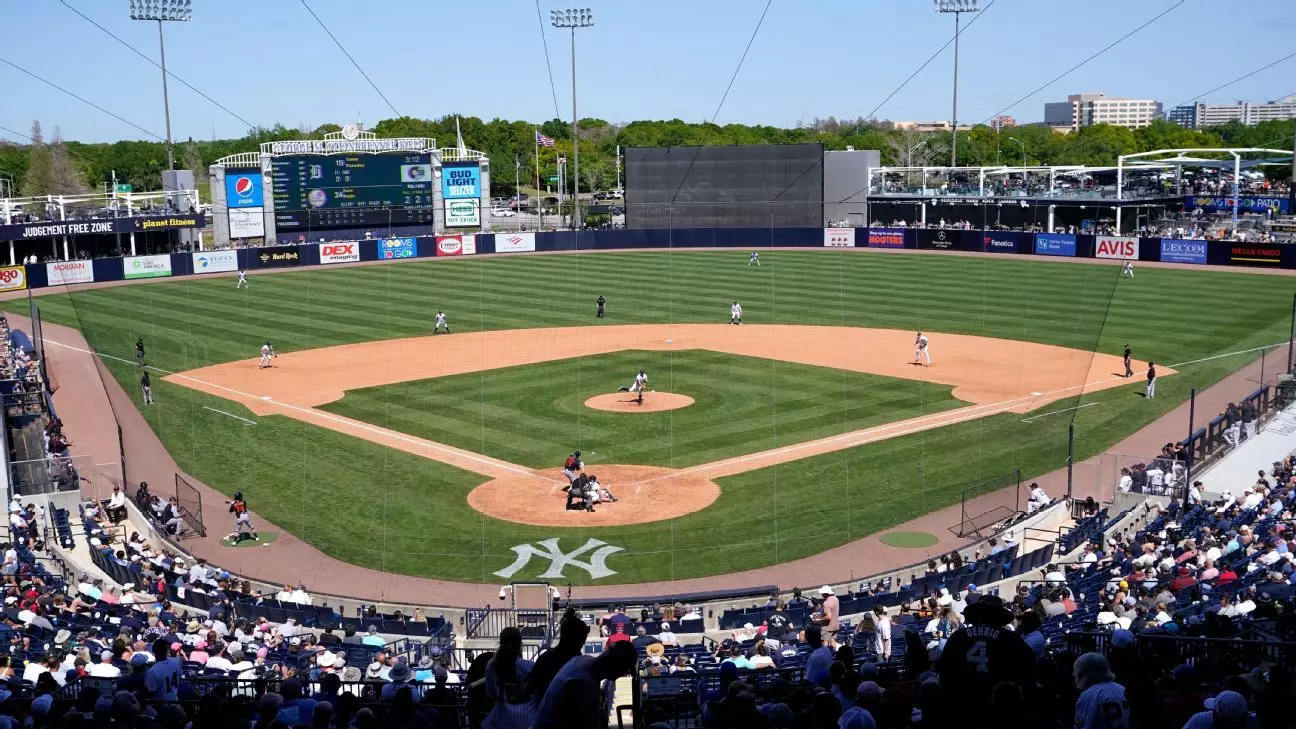Major League Baseball (MLB) is no stranger to upheaval, but the Tampa Bay Rays are currently facing unique challenges that require an innovative approach to their scheduling. Due to unprecedented damage sustained at Tropicana Field from Hurricane Milton, the Rays have been forced to temporarily relocate to Steinbrenner Field. This situation has prompted MLB to modify the team’s early-season schedule, ensuring that the Rays can maintain their competitive edge while contending with Florida’s notorious summer rains.
The Rays are set to play a remarkable 19 of their first 22 games at home, which highlights the team’s emphasis on maximizing home-field advantage early in the season. MLB’s restructuring of series matchups showcases a strategic shift designed to mitigate issues from summer weather. Specifically, a matchup against the Los Angeles Angels that was originally slated for April has been moved to Tampa. This adjustment reflects an understanding of the regional climate patterns, as historical data indicates that Tampa experiences a significant uptick in rainfall as summer approaches.
Furthermore, the Rays will enjoy a rare opportunity to play 37 out of their first 54 games in front of enthusiastic home crowds, capitalizing on the favorable weather of April and May. However, as the season shifts into June, the Rays will be forced to face an arduous schedule of 64 road games in their final 108 contests, potentially testing the team’s resilience as they aim for postseason success.
The meteorological statistics surrounding the Tampa Bay region offer a telling insight into this scheduling decision. According to the National Weather Service, average rainfall spikes dramatically from April (2.25 inches) to August (9.03 inches). This pattern makes it evident why MLB and the Rays prioritized early home games, purposely dodging the fury of summer storms that lead to delays and disruptions.
Moreover, the backdrop of Tropical Storm Milton adds an element of urgency to the discussions around venue safety and reliability. With the potential to return to Tropicana Field in 2026 being cast into doubt, the ongoing dialogue regarding appropriate home venues underscores the Rays‘ need to establish a consistent and practical game plan moving forward.
Looking ahead, the restructuring of the schedule brings about hope, as the team’s management seeks to bolster fan engagement and foster loyalty during this transitional period. The Rays’ commitment to playing at Steinbrenner Field springs from a well-thought-out strategy aimed at maintaining the vitality of baseball in Tampa Bay amidst uncertainty.
Additionally, it’s interesting to note that the Class A Tampa Tarpons have also felt the impact of these unpredictable challenges, resulting in a series of cancellations and postponements during their season. Their adaptation to play in alternate fields showcases the resilience of baseball organizations in terms of operational logistics amid adversity.
The Tampa Bay Rays are navigating uncharted territory as they substitute their usual home stadium for an alternative venue under challenging circumstances. The adjustments made by MLB not only highlight the challenges teams face in climates prone to storms but exemplify the strategic foresight necessary in professional sports. As the Rays embark on this new chapter, fans and management alike will benefit from a cohesive approach that prioritizes both competitive integrity and adaptability in the face of inevitable change.


Napsat komentář